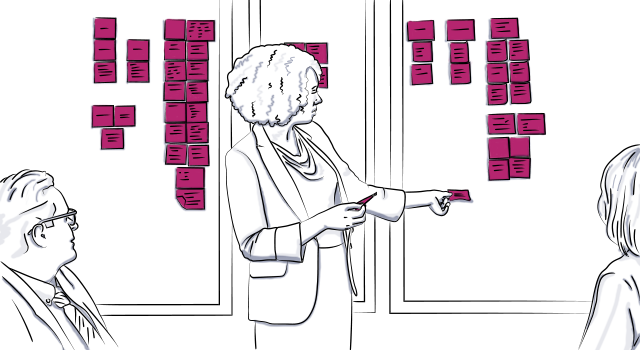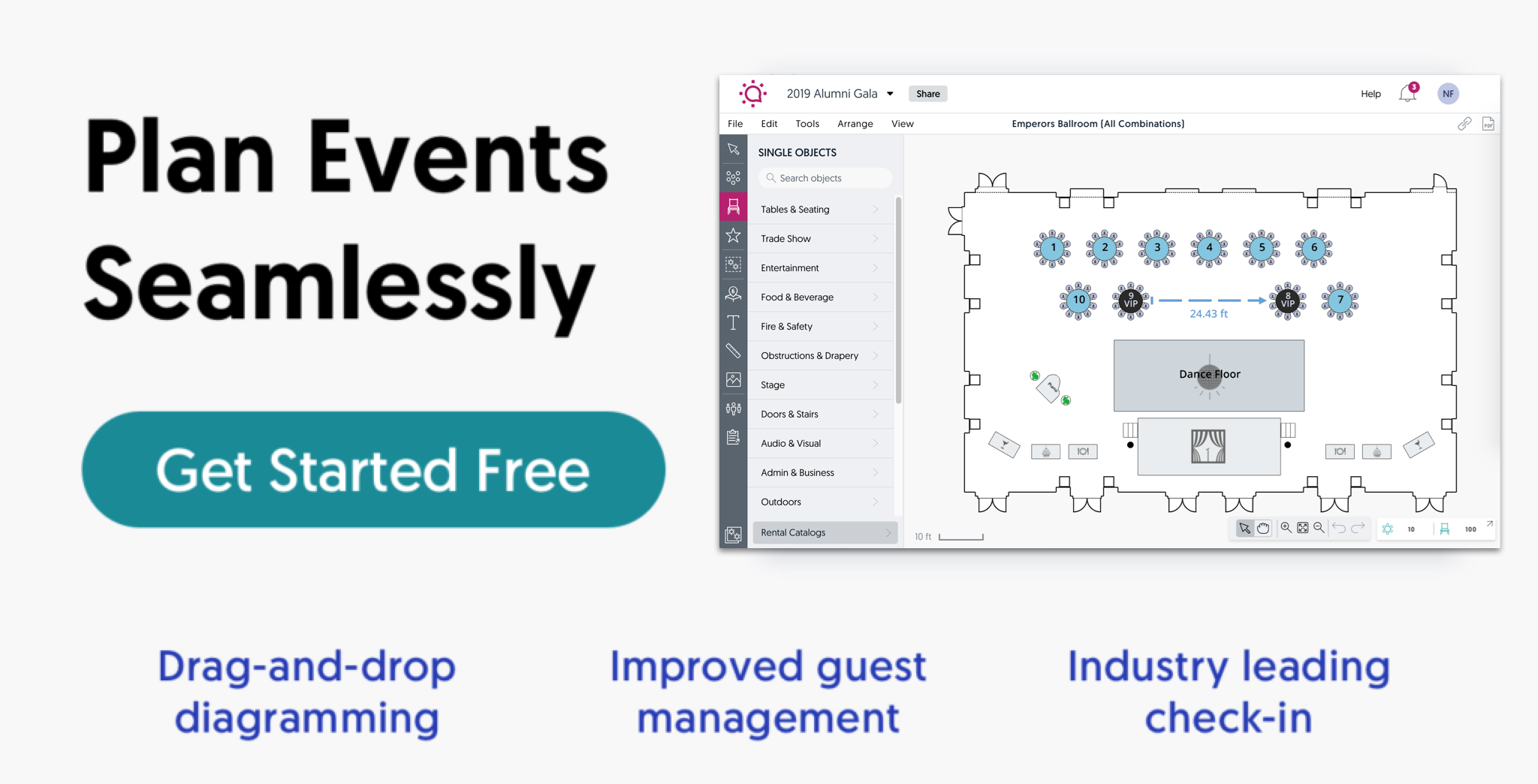
How to Plan a Workshop: 22 Tips to Know
Whether you’re a full-time event planner or you’re just getting started, this guide on how to plan a workshop is what you need to bring this special type of event to life.
First, let’s clear up any confusion. The term workshop is commonly used to describe many different types of events. But according to Merriam-Webster, a workshop is defined as “a usually brief intensive educational program for a relatively small group of people that focuses especially on techniques and skills in a particular field.”
In other words, think of a workshop as a small event with a main goal of providing attendees with informative value. A few examples of workshop ideas include photography lessons, coding classes, creative writing sessions, and hackathons. But it goes well beyond that. Just about anything can become a workshop with the right planning.
Discover how to plan a workshop with these 22 tips and tricks:
Here’s everything you need to do before, during, and after your workshop to make sure it’s a success.
1. Answer the 5 Ws (and 1 H)
The 5 Ws (and 1 H) make up the big picture of your workshop. Once written down, you’ll have a great roadmap for yourself and collaborators so that everyone gets on the same page from the beginning.
The 5 Ws (and 1 H) and their meanings are:
- Who is hosting this workshop, who is planning it, and who is attending it?
- What type of workshop is it? For example, a professional training workshop will likely be much different than a yoga workshop.
- When do you plan to do it? Is it a single event or a series?
- Where will the workshop take place? Also, will it be in person or virtual? And where do you expect participants to be located?
- Why this workshop and why now? Why do attendees need to be there?
- How will you execute this workshop based on what you know right now?
2. Determine your workshop goals
You probably already know how to create S.M.A.R.T. goals. But coming up with goals for a workshop has its own challenges.
First, there’s experience level. If you’ve hosted a workshop like this before, you can use historical data to review what went well and what you can improve on. If you don’t, you’ll have to do some digging to figure out what you can realistically expect out of it. Look for similar events in your area and ask those hosts if they’d be willing to hop on a quick call to share their experiences.
Second, you’ll have to forecast how many people will show up. If you’re running a workshop for a corporation, chances are the attendees are required to join. In that case, you don’t have to worry about attendance. But if you’re running an event without a guaranteed audience, look up statistics associated with your type of workshop and average attendance rates.

3. Choose a type
Whether it’s in-person or virtual, a professional training or a yoga session, the type of workshop you choose will determine how to plan it. For example, if you’re hosting a virtual sound bath, you’ll need to equip your practitioner with the necessary audio equipment to make the experience a good one.
4. Build a team
Like with any large project, a team helps lighten the lift. Even if your workshop is just for your in-house colleagues, you may be able to find volunteers among your coworkers, friends, or speakers. Start by asking stakeholders what they’d be willing to contribute. Establish a weekly meeting and estimate the time commitment you’ll need from each participant.
5. Research your audience
Look for what type of content (video, audio, memes, etc.) appeals most to them. Consider what their goals for the workshop are and begin brainstorming ideas for activities based on that. If you have direct communication with your target audience now, put out a poll or survey that allows them to share suggestions.
6. Outline the budget
Make a spreadsheet that lists every item you’ll need for the workshop. Include everything from the venue rental to digital ads. Add in the prices and quotes for each. After, calculate your possible revenue if it’s a for-profit event and see if the cost of hosting the workshop makes sense with your forecasted admission prices.
7. Create an agenda
Start with by introducing what this workshop is, who you and/or the speakers are, and what the workshop is all about. Include a main lecture, a breakout session that encourages participants to interact with each other, and a final reflection or Q&A to close out the event.
8. Learn from competition
Research similar events online to get an idea of what planners typically do and how you can improve on it. Look for workshop lengths, activities, themes, bonuses, and descriptions to inform your own.
9. Pick a date for the workshop
Keep your audience in mind when choosing your potential workshops dates and times. For example, if you want to reach bartenders, don’t host your workshop in the evenings or on weekends.
10. Draft your communication plan
Ask yourself the following questions:
- When and why will you communicate with your workshop audience?
- What channels should you use to reach them?
- How can you provide value beyond advertising your workshop?
11. Build a marketing calendar
Need a good place to start? An email list and 1-2 social media channels should be more than enough. Schedule time to draft, approve, share, and respond to comments for each piece of content you put out.
12. Set up for sales
Choose your ticketing platform and plan how you’ll accept payments in person. Factor fees and equipment into your event budget.
13. Develop your content
Create 3-4 pillars to base your content on. One can be your workshop, but the others should be about interesting related topics. Keep in mind that your aim should be to build community, not blindly sell, sell, sell.
14. Look for locations
If hosting in-person, create a wishlist of venues or venue types. If hosting virtually, determine which software platform you’d like to use.
15. Strategize your layout
Use our Event Diagramming tools to arrange the layout of your workshop. You’ll need spaces for event check-in, activities, breakout rooms, and any specialty spaces you’d like to include such as an outdoor area for post-workshop cocktails.
16. Plan activities
The best workshop activities begin with an icebreaker related to the workshop theme followed by your main event and a decompression period. This is also where your competitor research comes in. Take your favorite ideas from related events and put your own spin on them.
17. Consider partnerships
If you haven’t thought of it yet, consider partnerships with brands that can either benefit your audience or benefit your event. For example, a brand that can benefit your yoga audience would be a yogi-centric tea company. A brand that will benefit your event, on the other hand, would be a local yoga studio who has offered one of their teachers up as a workshop leader.
18. Gather tools
This step includes everything from pencils to a projector to your chosen email newsletter platform. Plan this out ahead of time just in case you need to have an item shipped to you or you want to test out some software.
19. Review workshop best practices
Make sure your speaker knows what energy to bring to the event. Also, keep in mind that while you should outline the presentation, there should be room for the event to flow with the vibe of the group, too. That means giving participants room to speak, improving some of your dialogue, and having an extra segment or two in your back pocket just in case you speed through the others.
20. Do a huddle
Gather with your team in the days leading up to the event. Review everyone’s responsibilities, go over your day-of plan, and come up with Plan B for key agenda items if you haven’t yet.
21. Host a dry run
If your event is virtual, this step is especially important. Check internet speeds, video and audio quality, and lighting for all hosts. Run through software programs and see if there are any updates required before you can use them.
22. Host a post-workshop analysis
In a massive study conducted by teams at the University of Manchester, University of Oxford, and many others, researchers came up with a system for how to measure the impact of workshops. According to their findings, “it is worth understanding why we want to measure impact in the first place and balance this with the amount of time required to organise the workshop and time we want to put into evaluating the workshop.”
It goes on to note: “With good measurements, we can convince funders to maintain and support the work that we do, encourage people to attend our workshops and feel satisfied that the work that we are doing with our workshops is worthwhile and making a positive difference.”
Now you know how to plan a workshop!
Now that you know how to plan a workshop and have this workshop checklist for easy reference, you can round out your plans with lessons learned from these virtual event examples.
Up next, avoid unnecessary mistakes with these top client meeting tips for beginner event planners.

